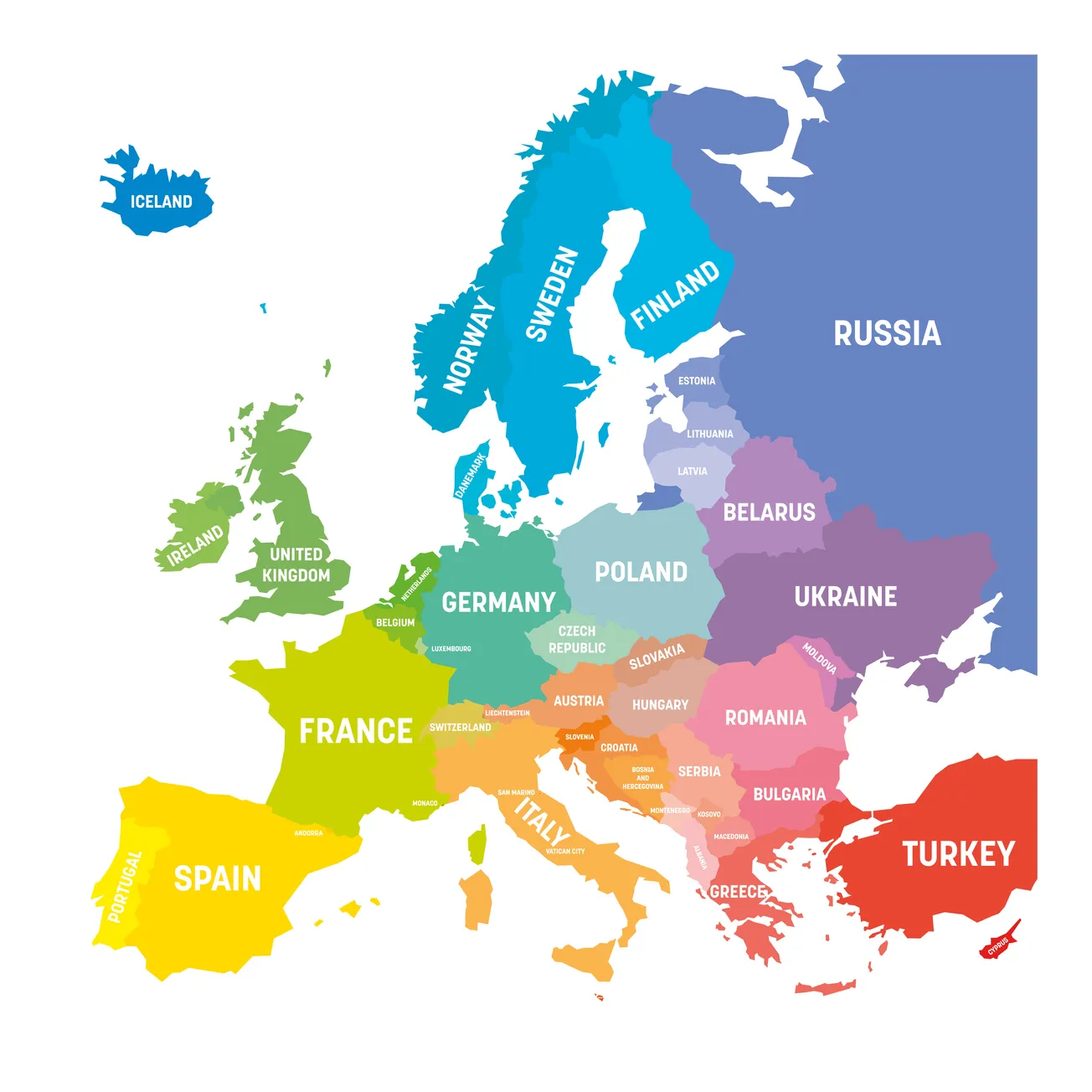The podcasting industry in Europe has been flourishing, with notable expansion in several key markets, including the United Kingdom, Germany, France, Spain, and the Nordic countries.
This growth has been driven by technological advancements, increased internet accessibility, smartphone penetration, and shifting media consumption patterns. Each country offers a distinct podcasting landscape, reflecting cultural preferences, language diversity, and local trends.
Our series on podcasting in different areas of the world includes looks at Latin America, the Middle East, China and Africa, with more to come.
The United Kingdom leads Europe in podcast consumption, with an estimated 10 million adults tuning in regularly, spurred on by the COVID-19 pandemic. London remains the podcasting hub, but other cities such as Manchester and Bristol are emerging as creative centers.
Comedy, news, and true crime are dominant genres, with major shows like "My Dad Wrote a Porno", "The Guilty Feminist", and "The Rest is Politics" enjoying widespread popularity.
Corporate media outlets such as the BBC, The Guardian, and The Times have embraced the medium, often repurposing their radio or news segments into podcast form. The BBC’s "Newscast" is a prominent example of a successful news podcast.
Meanwhile, platforms like Spotify and Apple have aggressively expanded in the UK by securing exclusive content deals and launching platform-specific features, such as Spotify Originals. This has provided new monetization opportunities for creators, with subscription services and dynamic ad insertion technologies helping podcasters increase revenue streams.
Germany has emerged as a major podcasting market, with its focus on professional, educational, and journalism-based content. The country's podcasting scene is characterized by high-quality production, with broadcasters like ARD and ZDF leading the way. There is also a notable trend toward multilingual podcasts, with many creators offering content in both German and English to cater to international audiences.
German podcast listeners are particularly interested in tech, culture, and politics. Podcasts like "Fest & Flauschig", a satirical podcast hosted by Jan Böhmermann and Olli Schulz, have become cultural phenomena. Germany's diverse linguistic landscape also means that Turkish-language podcasts are gaining traction, particularly among the country's sizable Turkish-speaking population.
The rise of smart speakers and smartphone integration has also boosted podcast consumption, allowing listeners to engage with content on-the-go. This trend is expected to continue, as Germany’s tech-savvy audience seeks more personalized and interactive podcast experiences.
France has embraced podcasting as an extension of its strong storytelling tradition. Initially, the French podcasting scene was dominated by independent creators, but now mainstream media outlets like Radio France and Le Monde are heavily involved.
French-language podcasts span a wide variety of genres, from investigative journalism to cultural commentary. Educational podcasts are particularly popular, with many schools and universities integrating podcasts into their curricula.
Platforms like Sybel and Majelan have gained prominence by offering both original French-language content and translated international shows. These platforms are playing a crucial role in promoting the medium within France, helping podcasts gain mainstream acceptance. Shows like "Affaires Sensibles" (Sensitive Affairs) delve into French history, while investigative podcasts like "Les Couilles Sur la Table" (Balls on the Table) tackle social issues.
French podcast listeners also tend to prefer shorter, tightly-produced shows, which contrasts with the longer, freewheeling style common in Anglo-American podcasting.
Spain’s podcast market has expanded rapidly, driven by a combination of local and global demand for Spanish-language content. As one of the largest Spanish-speaking nations in Europe, Spain plays a central role in producing podcasts that are consumed across the Spanish-speaking world, including in Latin America and the United States.
Much of the podcasting content in Spain originates from traditional radio shows, which have transitioned smoothly into the podcast format. Spanish podcasting platforms such as iVoox cater specifically to local audiences, offering a broad range of content from sports to self-help and politics. Shows like "Nadie Sabe Nada" (Nobody Knows Anything), a comedy podcast, have captured the imagination of local listeners.
Spain’s growing appetite for on-demand audio content reflects its robust radio culture, with many Spanish podcasters successfully blending old and new media formats.
The Nordic countries, particularly Sweden, Denmark, and Norway, have been early adopters of podcasting, driven by high smartphone penetration and a strong tradition of public media. Sweden has become one of the most influential podcasting markets in Europe, with platforms like Acast and PodMe leading the way in podcast production and monetization.
Nordic podcasts tend to focus on socially conscious themes, including mental health, equality, and climate change. True crime and personal storytelling are also popular, with shows like "Serial" inspiring local adaptations. Nordic countries are particularly noted for their high level of podcast innovation, with public broadcasters experimenting with new formats to engage younger audiences.
The growing presence of English-language podcasts produced in the Nordic countries has allowed creators to reach a broader, international audience. At the same time, local language podcasts remain vital in fostering national and regional conversations on social issues.
Across Europe, the podcasting industry is growing at an impressive rate, fueled by the proliferation of smartphones, smart speakers, and increasing internet connectivity. The major markets—Germany, the UK, France, Spain, and the Nordic countries—are shaping the future of podcasting in unique ways, reflecting their respective cultures and media landscapes.
Germany's focus on professional, multilingual podcasts; France's emphasis on storytelling and cultural heritage; Spain's adaptation of radio content to the podcast format; the UK’s thriving independent scene and corporate-backed productions; and the Nordic countries’ socially conscious innovation, all contribute to a rich and diverse podcasting ecosystem in Europe.









